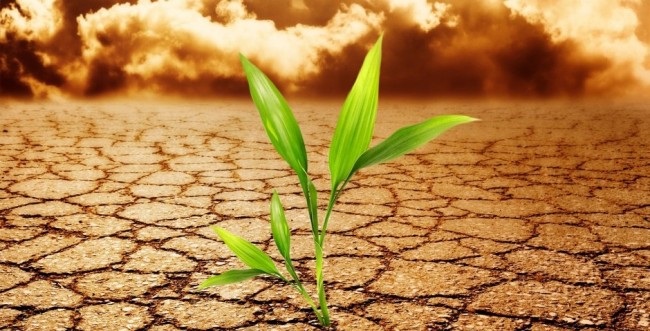Plan your environmental calendar

THE United Nations as well as the African Union have set aside environmental days.
These observance days provide a platform for stakeholders to share ideas, experiences, and insights and raise awareness and publicity on various environmental issues
World Wetlands Day – 2 February
This day marks the adoption of the Convention on Wetlands on 2 February 1971, in the Iranian city of Ramsar. Zimbabwe has acceded to the
Convention and has seven (7) sites designated as Ramsar sites. Zimbabwe has formed a taskforce to spearhead national action and international cooperation for the conservation and wise use of wetlands and their resources. Let’s all conserve our wetlands. Do not cultivate on the steam bank.
Keep infrastructure, housing and all development away from wetlands.
Africa Environment Day – 3 March
Set aside by African Union in order to heighten public awareness on topical environmental issues affecting African countries. Zimbabwe uses this day as a platform to discuss topical issues like waste management, sustainable development and green economy through symposiums to allow discussion and sharing of insights, perspectives and experiences.
World Wildlife Day – 3 March
The Sixty-Eighth Session of the United Nations General Assembly decided to proclaim the 3rd of March as World Wildlife Day to celebrate and raise awareness of the world’s wild fauna and flora.
International Forest Day – 21 March
The Day celebrates and raises awareness on the importance of all types of forests. Zimbabwe organizes activities involving forests and trees, such as tree planting campaigns to heighten people’s appreciation of the value of trees.
World Water Day – 22 March
The Day was declared an international day in 1992 by the United Nations General Assembly and was first celebrated in 1993. The day is devoted to conservation activities of water resources and its integrated use.
World Meteorological – 23 March
The day highlights the huge contribution that the National Meteorological and Hydrological Services make to the safety and well-being of society.
Earth Hour – 27 March
The day focuses on the need to take action against climate change. The key activity undertaken during the hour is turning off lights in order to reduce the carbon foot print.
Earth Day – 22 April
Earth Day is a global attempt for international co-operation to address such issues as the greenhouse effect, the hole in the ozone layer, toxic waste, groundwater contamination, and destruction of rainforests, expanding deserts and ocean pollution.
National Fire week – Second week of May
The week is meant to raise awareness on protecting the ecosystems from veld fires. The country emphasizes fire guard construction, establishment and training of firefighting teams and enhances community preparedness to manage veld fires. Do not let your dreams go up in smoke, prevent and put out all veld fires.
International Day for Biological Diversity – 22 May
The day was proclaimed in order to increase understanding and awareness of biodiversity issues. Zimbabwe focuses on access and benefit sharing of genetic resources so that people appreciate the need to conserve biological resources. Stop deforestation, stop veld fires and stop destruction of our biodiversity.
World Environment Day – 5 June
The Day was established by the United Nations General Assembly in 1972 to mark the opening of the Stockholm Conference on the Human Environment. The aim is to encourage people to become active supporters of sustainable and equitable living, to promote awareness and an understanding that communities play a central role in changing attitudes towards environmental issues. Zimbabwe normally holds an Expo where stakeholders show case their initiatives and innovations that are environmentally friendly.
World Desertification Day – 17 June
The United Nations General Assembly acknowledge that desertification and drought are a global problem as they affect all regions of the world and require joint commitment of individuals and organizations to work together in minimizing this problem. Zimbabwe emphasizes on sustainable land management, water harvesting, crop rotation as well as afforestation programmes in order to reduce land degradation and drought impacts
International Day for the preservation of the Ozone Layer – 16 September
The Montreal Protocol was adopted on 16 September 1987. Governments agreed to co-operate in phasing out chemicals that deplete the ozone layer.
National Tree Planting Day – First Saturday of December
The first Saturday of December each year, is a day when all citizens of Zimbabwe participate in tree planting activities, and marks the beginning of the tree planting season up to the end of summer. This day commenced in 1980 and it is a national and patriotic duty for every individual take part in tree planting and care activities .The President of the Republic of Zimbabwe leads the event showing tree planting commitment from the highest levels. Plant a tree every year.
Get involved as communities and organise local level activities for the observance of these environmental days. It is encouraged to think globally and act locally because environmental issues are intertwined and sustainable utilization of the environment depends on people working together.
ECO QUIZ FOR COLLEGE/UNIVERSITY STUDENTS
Answer this question correctly and you can walk away with a PRICE!
Question: Name the most pressing environmental issues in Zimbabwe and give the examples of areas affected.
NB: All answers should be sent to [email protected]. Indicate your name, college/university, registration number and the programme you are studying. Deadline is the 29th of January 2016.











Comments